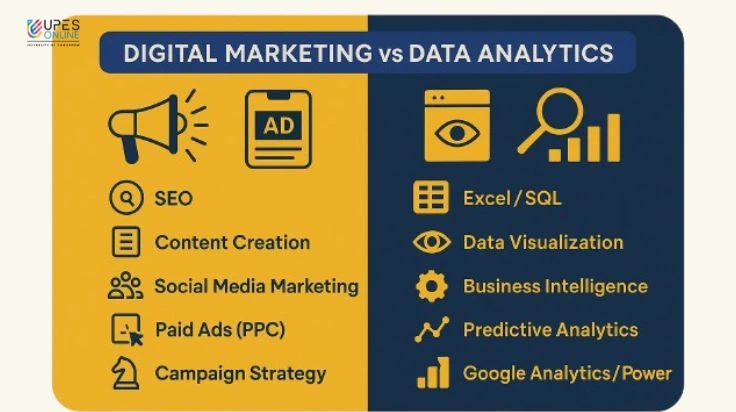Sustainable Energy: Myth or Reality for Oil & Gas?

The global economy has historically depended heavily on the oil and gas sector. However, with the increasing concerns about climate change and environmental degradation, the industry faces the challenge of balancing economic growth with environmental protection.
Achieving sustainability in the oil and gas industry is challenging, but with innovative ideas, there are opportunities to achieve sustainable development while minimizing the environmental impact.
Sustainability in the Oil and Gas Industry
Sustainability in the oil and gas industry is about balancing economic growth with environmental protection. It is about reducing greenhouse gas emissions, conserving natural resources, and minimizing the impact of oil and gas exploration and production on the environment.
Achieving sustainability in the oil and gas industry requires a combination of technological innovation, efficient operations, and responsible management.
The industry has significantly reduced its environmental impact in recent years. Advances in technology have enabled the industry to extract oil and gas more efficiently, reducing greenhouse gas emissions and waste. For instance, hydraulic fracturing technology has made extracting natural gas from shale rock possible, reducing the need for coal and lowering carbon dioxide emissions.

Innovative Ideas in the Oil and Gas Industry constantly seek new ways to reduce its environmental footprint while maintaining profitability. Here are some innovative ideas that are being implemented in the industry:
-
Carbon Capture, Utilization, and Storage (CCUS)
The carbon dioxide emissions from factories and power stations are captured using CCUS technology, transferring the compressed carbon dioxide underground for storage.
-
Renewable Energy
The sector looks at the potential for renewable energy sources, including wind and solar. For instance, oil and gas corporations finance solar and offshore wind energy initiatives.
-
Digitalization
Digital technology is transforming the oil and gas industry. It is making operations more efficient and reducing the industry’s environmental impact. For instance, digital tools are being used to optimize drilling operations, reducing waste generated.
-
Circular Economy
The circular economy is a regenerative economic system that strives to keep resources in use for as long as feasible. The circular economy offers oil and gas sector opportunities, including material recycling and reuse.
Opportunities in the Oil and Gas Industry are about more than just extracting and selling oil and gas. Numerous options in the industry can promote sustainable development. Here are some of the options in the industry
-
Environmental Consulting
Environmental consulting firms provide environmental impact assessments, remediation planning, and sustainability consulting to oil and gas companies.
-
Energy Efficiency
Energy efficiency services help oil and gas companies reduce their energy consumption and greenhouse gas emissions.
-
Carbon Trading
Carbon trading is a market-based mechanism that allows companies to buy and sell carbon credits. Oil and gas companies can generate carbon credits by reducing their greenhouse gas emissions, which they can then sell to companies that exceed their emissions targets.
-
Sustainable Transport
The oil and gas industry can promote sustainable transport by investing in electric vehicles and alternative fuels.
-
Sustainable development in the oil and gas industry
Sustainability is about meeting the needs of the present without compromising the ability of future generations to meet their own needs. It is about balancing economic growth with environmental protection, social responsibility and tackling industry challenges.
Achieving sustainable development in the oil and gas industry requires a long-term perspective, stakeholder engagement, and a commitment to continuous improvement.

Environmental sustainability in the oil and gas industry
It means minimizing the impact of operations on ecosystems and communities. Achieving environmental sustainability requires a focus on reducing greenhouse gas emissions, protecting biodiversity, and minimizing water use and pollution.
To achieve environmental sustainability, the industry must be committed to responsible management of natural resources and compliance with environmental regulations. Additionally, the industry must work with communities to address concerns and ensure that economic development benefits are shared equitably.
Achieving sustainability in the oil and gas industry will require collaboration between stakeholders, including governments, companies, communities, and civil society organizations. By working together, these groups can identify shared goals and solutions and build a more sustainable future for everyone.
Finally, it’s essential to consider the impact of climate change on the oil and gas industry. As the planet warms, the sector may face increased risks from extreme weather events and regulatory and policy changes to reduce greenhouse gas emissions.
By reducing their emissions and investing in sustainable practices, companies can help mitigate these risks and ensure their long-term viability.
Conclusion
In conclusion, sustainability in the oil and gas industry is essential for balancing economic growth and environmental protection. The industry must focus on reducing greenhouse gas emissions, minimizing the impact of operations on ecosystems and communities, and improving the efficiency of operations.
UPES Online Admission Enquiry
Recommended Courses




Latest Blogs

Digital Marketing vs Data Analytics: Which Career Should You Choose?
Battle of skills: Digital Marketing vs Data Analytics—compare 2025 salaries, skills & job roles. Expert tips to choose your future career path!
Read MoreJun 15, 2025 I 12 mins
Why Should I Choose UPES Online? 10 Reasons Why
Explore why UPES Online stands out in online education. Learn about flexible learning, UGC-approved degrees, expert faculty & credible online programs. Enroll now!
Read MoreAug 21, 2025 I 5 min
Can Distance Learning Fully Replace Traditional MBA Education? Challenges & Limitations
Find out if distance learning can truly replace a traditional MBA. Learn key challenges, limitations, expert opinion & insights.
Read MoreSep 2, 2025 I 4 mins
Online MBA Capstone Projects and the Importance They Hold
Know the importance of online MBA capstone projects. Learn how they build real-world skills, boost career opportunities, & add industry value.
Read MoreSep 7, 2025 I 5 mins
UPES Online MBA vs Other Top Universities: Why Students Prefer UPES
Compare UPES Online MBA with other top universities. Know why students prefer UPES online over others. Check fee, flexibility, faculty, ROI, & career scope.
Read MoreOct 1, 2025 I 7 mins






